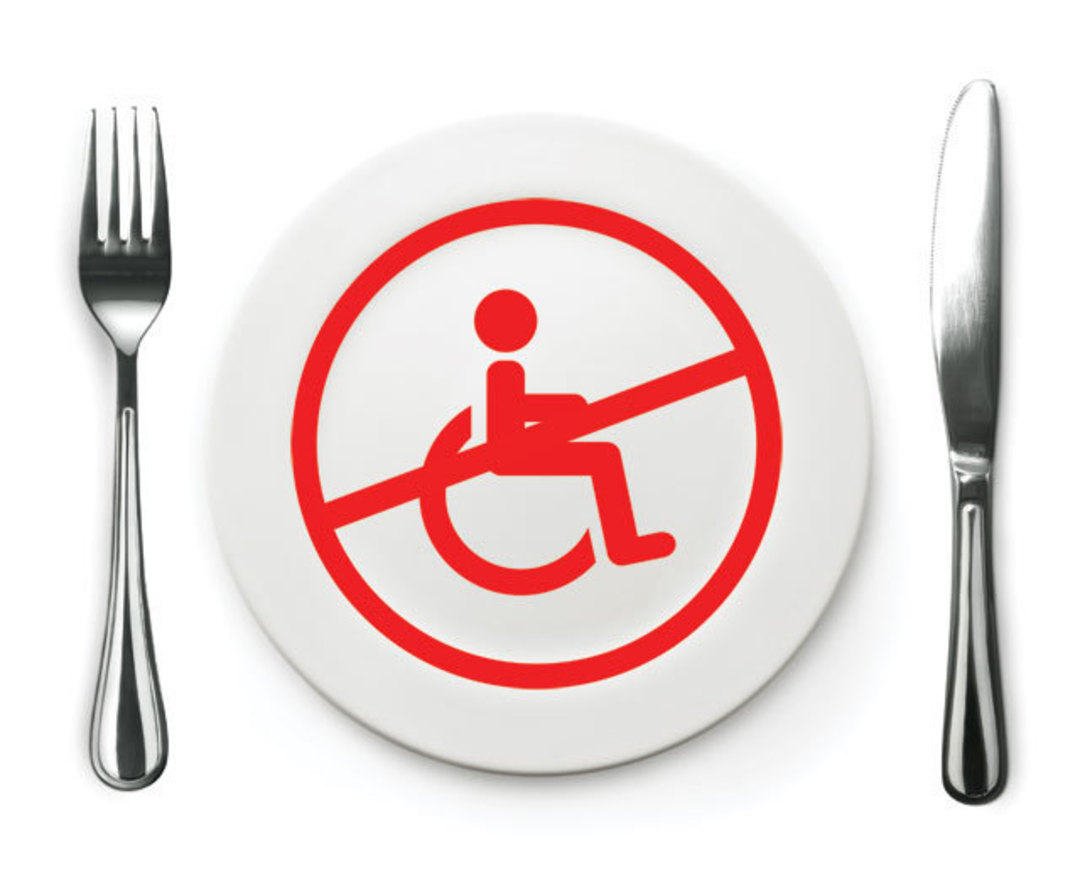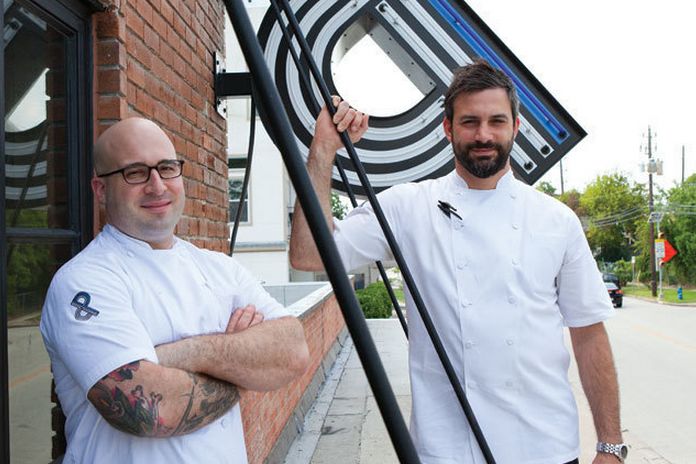Standing Room Only

[Note: Because misinformation has been circulated by various media outlets and their representatives regarding the following story, we would like to clarify our intentions in publishing it. The point was never to cast a negative light on either chef Justin Yu or his restaurant, Oxheart. If that was our aim, we would have hardly included Oxheart in our cover story, “Fifty Restaurants That Define Houston Dining.” Katharine Shilcutt’s piece was written in reaction to an experience she personally witnessed, one in which a handicapped diner was denied admittance to a restaurant because it was not wheelchair-accessible. We found that rather surprising, as have many Houstonians who have written to us subsequent to the article’s publication. The details of the incident that gave rise to this story are a matter of dispute, but one thing is indisputable: there is a great deal of confusion about what business establishments in Houston must do in order to secure ADA compliance (as a quick perusal of this article’s comments section will attest). Our fondest wish is that this article will lead to further clarification on this issue, and most importantly, to improved access to public spaces for handicapped individuals, who—as the article also makes clear—continue to suffer greatly in this regard. —Eds.]
One of the best restaurants in Houston—perhaps the entire country, if certain national publications are to be believed—is Oxheart. To say that this Warehouse District establishment is difficult to get into is something of an understatement. In fact, it’s nearly impossible to get into.
Especially if you’re in a wheelchair.
My friends and I made this unhappy discovery upon arriving at Oxheart on a Sunday evening in July. Among our party of five was a retired professor who had traveled all the way from Centerville to enjoy one of Oxheart’s fabled meals. He’d made the two-hour trip only to discover that the eatery couldn’t accommodate him because of his wheelchair.
For which the restaurant didn’t even apologize: “I’ll see if the chef will consider waiving the cancellation fee,” sniffed the hostess to the professor, insinuating that he might owe Oxheart $49 for each of the five people who had technically been no-shows.
Needless to say, we were furious. The next day I phoned chef Justin Yu, who confirmed that the restaurant was indeed planning to charge the professor $245 for canceling, even though it was Oxheart that had canceled on him. Clearly, Yu wasn’t happy about how things had turned out, however.
“Obviously, we’d much rather serve him,” he said. “I’d always rather serve people. It’s just part of our policy.”
You might wonder how a restaurant—or any other public facility, for that matter—could get away with not having handicapped access, especially in this day and age. Yu claimed that because Oxheart was housed in a historic building, it was exempt from such regulations, having been “grandfathered in,” as he put it.
That’s a load of offal, said Aaron McCullough, an attorney and former social worker who specializes in lawsuits and other issues involving the 1990 Americans with Disabilities Act. “The ADA doesn’t opt out anything from compliance. There ain’t no such thing as a ‘grandfather clause.’” It’s a common misconception, however, and McCullough still encounters the odd eatery that isn’t ADA compliant.
But why are restaurants like Oxheart allowed to open in the first place? Because there’s no one around to ensure that wheelchair ramps or handicapped-accessible restrooms have been built. The City of Houston and its inspection and permitting departments aren’t charged with this task. Enforcement of ADA requirements is a federal responsibility.
Given that, there are only two real ways to address the problem, says McCullough—“through complaints to relevant federal agencies and private lawsuits.” But litigation can be an involved and expensive undertaking.
Far easier is to file a complaint with the Department of Justice. If the DOJ determines that a business isn’t providing access to disabled persons, it could be fined up to $5,000 a day per infraction until the situation is rectified.
But, Yu said, retrofitting his tiny restaurant according to ADA standards would be cost-prohibitive. Besides, he said, incidents like the ones my friends and I experienced are rare. “Generally what we do is let them know what kind of accommodations we do have.” Those accommodations include a portable ramp (which wasn’t available on our Sunday evening visit, although both parties agree that the professor mentioned his handicapped status when his reservation was made.)
A handicap-accessible restroom is not one of the accommodations. Yu had no suggestion as to what wheelchair-bound customers should do if they needed to use the facilities during one of Oxheart’s marathon tasting menu dinners.
This doesn’t surprise McCullough, who says that it remains difficult—even now—for able-bodied folks to be cognizant of the needs of the handicapped. “Things are undoubtedly better than they were in 1990,” said McCullough, “and things are more accessible. But we aren’t all the way there.”
update: Between the time this story was reported in late July and when the magazine was sent to print in August for the print version of our October issue, owner/chef Justin Yu says Oxheart decided not to charge the professor the cancellation fee of $245.
"I didn't know what to do," Yu said by phone today, October 2. "We tried really hard to get in touch with [the professor]" when the initial reservation was made, to confirm that wheelchair access was indeed required—a point the professor disagreed with. Yu says that although the restaurant never heard back from the professor, a wheelchair ramp was available on the night of the dinner. Yu also says the professor claimed that the ramp was insufficient and unworkable for his wheelchair. I did not personally bear witness to this conversation, although I have a call in to the professor to confirm.
Regardless, says Yu, the restaurant has now purchased a newer and sturdier wheelchair ramp and is attempting to come into compliance with ADA regulations as best it can. "I really want to serve every person I can," says Yu. "We want to accommodate anyone for any reason—dietary restrictions, anything."
"We just want to make people happy."




